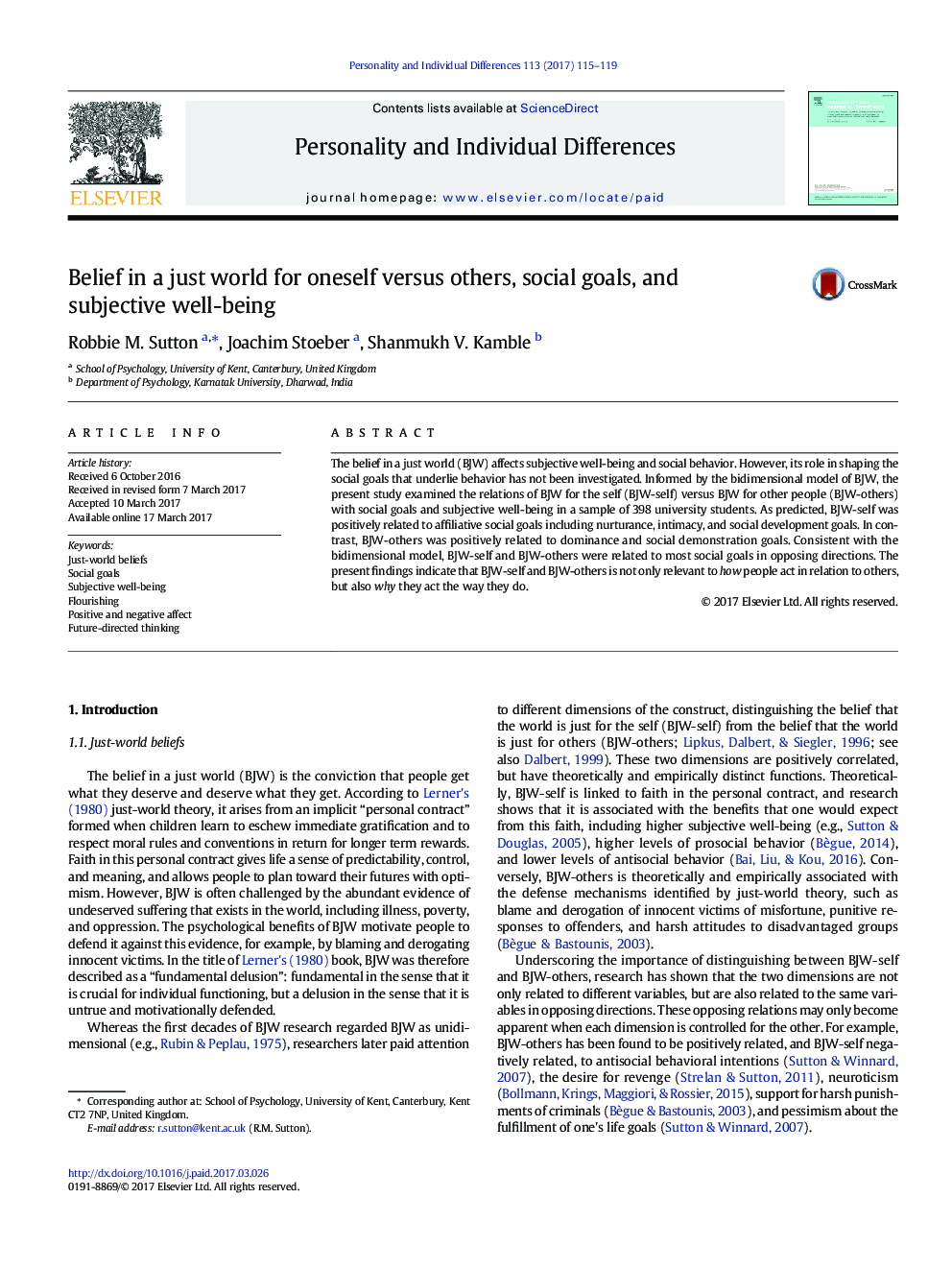| کد مقاله | کد نشریه | سال انتشار | مقاله انگلیسی | نسخه تمام متن |
|---|---|---|---|---|
| 5035768 | 1472005 | 2017 | 5 صفحه PDF | دانلود رایگان |
- BJW for oneself (BJW-self) was related to affiliative social goals.
- BJW-self was negatively related to leadership, dominance social demonstration.
- BJW for self and others were related to social goals in opposite directions.
- Affiliative social goals were related to well-being.
- Dominance and demonstration-avoidance goals were negatively related to well-being.
The belief in a just world (BJW) affects subjective well-being and social behavior. However, its role in shaping the social goals that underlie behavior has not been investigated. Informed by the bidimensional model of BJW, the present study examined the relations of BJW for the self (BJW-self) versus BJW for other people (BJW-others) with social goals and subjective well-being in a sample of 398 university students. As predicted, BJW-self was positively related to affiliative social goals including nurturance, intimacy, and social development goals. In contrast, BJW-others was positively related to dominance and social demonstration goals. Consistent with the bidimensional model, BJW-self and BJW-others were related to most social goals in opposing directions. The present findings indicate that BJW-self and BJW-others is not only relevant to how people act in relation to others, but also why they act the way they do.
Journal: Personality and Individual Differences - Volume 113, 15 July 2017, Pages 115-119
